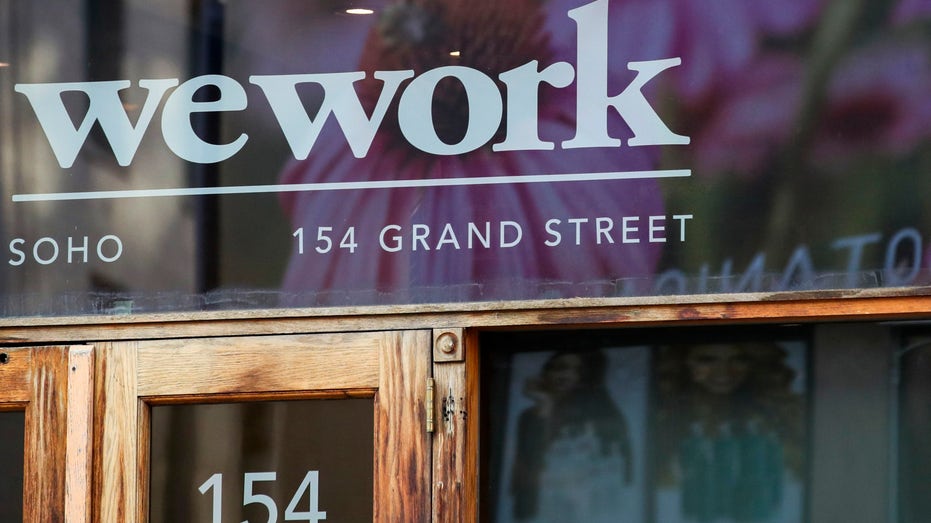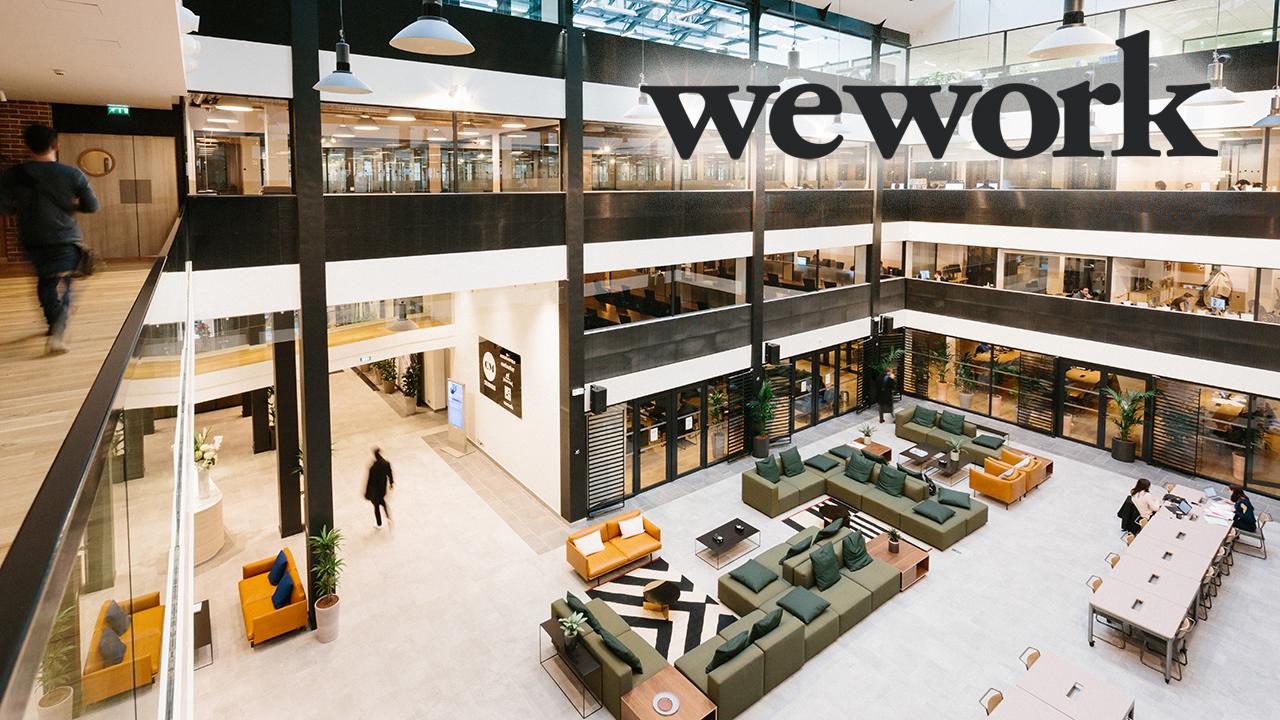Amid coronavirus pandemic, WeWork unveiling plans to adapt to changing economy
Co-working company to unveil social distancing office plans, sources
WeWork, the troubled office-sharing company is among the most vulnerable outfits in Corporate America to the economic implosion caused by the coronavirus pandemic, according to many top Wall Street executives and real estate experts.
But it's way too early to begin writing the company's obituary, people close to WeWork believe.
Amid the global pandemic, WeWork has drafted a plan for the company to rise out of the ashes of an economy heading for a steep recession.
At least that's the storyline WeWork is now touting to analysts, journalists skeptical of the company's future, and to their employees, according to people briefed on the company’s new marketing plans. In fact, the company is hosting a quarterly town hall on Tuesday to discuss the future of WeWork, where senior executives will lay out their vision for the future of the company, FOX Business learned.

A WeWork logo at the entrance to one of its offices in the SoHo neighborhood of New York. (AP Photo/Mary Altaffer, File)
That vision will certainly be met with a high degree of skepticism given WeWork's business conundrum: it is essentially a real estate leasing company that has fixed costs and revenues that are falling fast because its core customers -- entrepreneurs and freelance employees -- are social distancing themselves away from their WeWork office.
But FOX Business has spoken with people who have direct knowledge of WeWork’s operations in recent days as speculation about the company's increasingly perilous future spread in Wall Street and real estate circles. People with direct knowledge of WeWork’s financials denied that the company has any plans to enter bankruptcy. They pointed to financing that includes approximately $4.4 billion in cash and cash commitments, which followed WeWorks bailout last October from its largest investor, SoftBank Corp.
People with direct knowledge of the cost-cutting efforts say WeWork is scaling back investments made by former CEO Adam Neumann, who was ousted after the company's botched IPO. The downsizing that has included layoffs will continue in an effort to slash any item that isn't essential to its core office-sharing business, according to people familiar with WeWork’s plan. The company is also in the process of renegotiating leases with their landlords to reduce rents.
Despite WeWork’s current contretemps with Softbank— which WeWork has sued over its decision not to go forward with a plan to purchase shares from major investors including Neumann--—the big tech investor is standing behind the company, and it is not looking to lose its more than $10 billion that it sunk into WeWork, according to people with direct knowledge of the matter.

Adam Neumann, co-founder and former CEO of WeWork (AP Photo/Mark Lennihan, File)
Moreover, the cost-cutting efforts will be implemented by Marcelo Claure, former Sprint Corporation CEO and a close confidante of Softbank CEO Masa Son, when he was appointed WeWork’s executive chairman in the fall. In February, Sandeep Mathrani, was appointed WeWork CEO.
Most of all, people with direct knowledge say WeWork believes it has adjusted strategic plans to survive the pandemic business environment. WeWork executives are now pitching its core office share product as something that can best adapt to social distancing, which will be in effect for months and maybe years following the pandemic.
The core business pitch WeWork will roll out is that its offices are less dense than traditional offices found in banking and finance, and well positioned for the post-pandemic office culture.
The company has recently updated marketing materials to show they will help customers space things out and make offices safe for social distancing measures, including reconfiguring hallways so people only move in one direction and putting fewer chairs around conference tables and spacing couches and desks farther apart, these people say.
It's unclear how much of this will be unveiled Tuesday during the company's quarterly town hall meeting with its 11,000 employees. The vast downsizing the firm is undergoing will ultimately lead to more layoffs on top of the 2,400 jobs already cut before the pandemic struck the economy.
CLICK HERE TO READ MORE ON FOX BUSINESS
It's also unclear if Softbank will be on-board with the changes if they don't produce immediate results. The Japanese tech outfit run by Masayoshi Son announced a $17 billion loss Monday and much of it came from its investment in WeWork.
A Softbank spokeswoman declined to comment. A WeWork spokeswoman also declined to comment
Meanwhile, real estate investors and analysts told FOX Business they are much less sanguine about WeWork’s future. Should the world enter a severe recession or a depression, as several economists are now predicting, it’s unlikely that any company so closely tied to real estate and already in financial straits can survive, analysts say.
"I cannot think of a worse business model in the era of this pandemic than the WeWork business model," said Nori Gerardo, a senior lecturer at the Harvard Business School.
Gerardo said WeWork's plan to sell itself as a social-distancing office mecca won't work because it gets paid on the volume of people using its space.
"Their business model is to cram people together in the smallest amount of space."




















